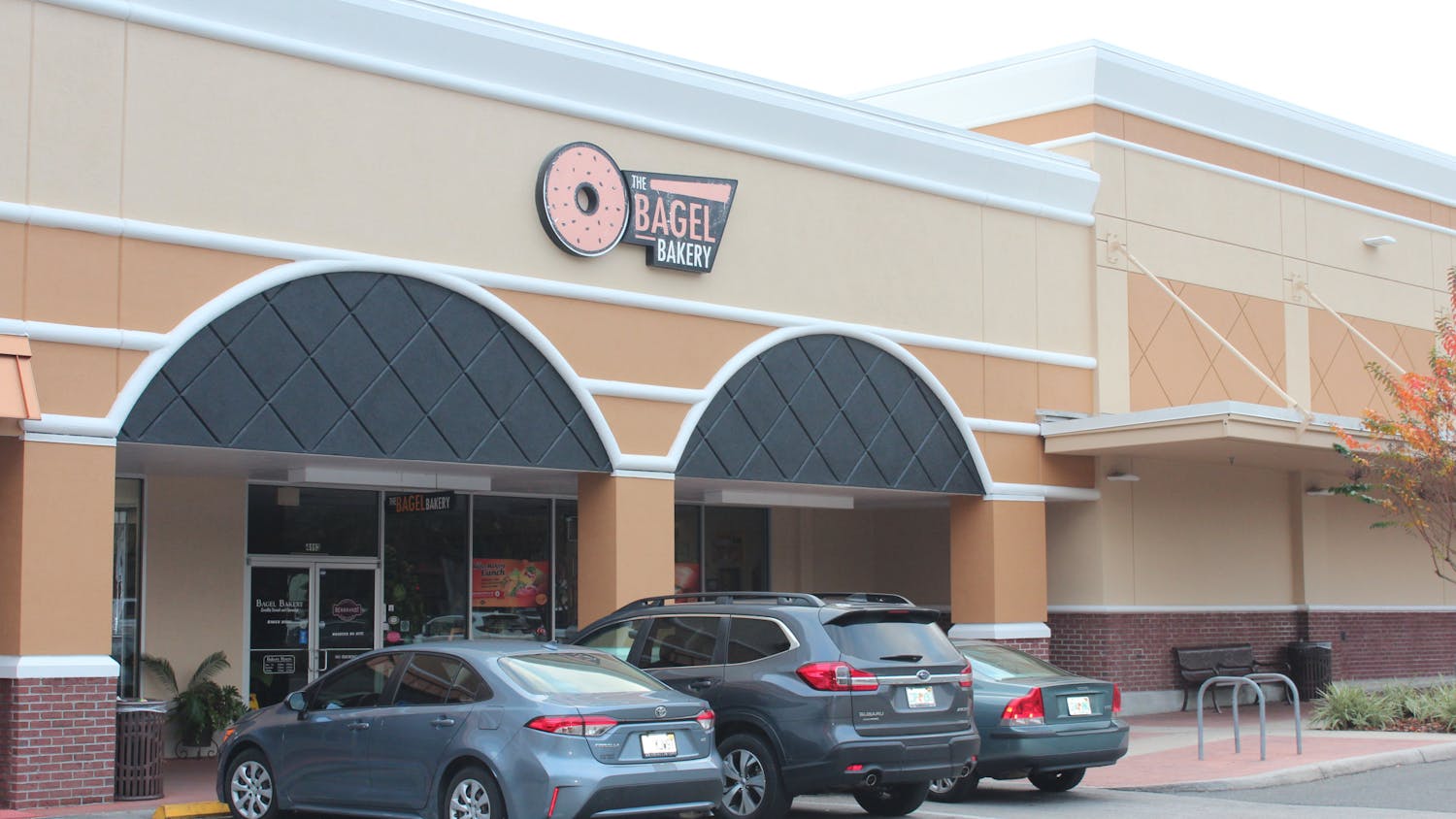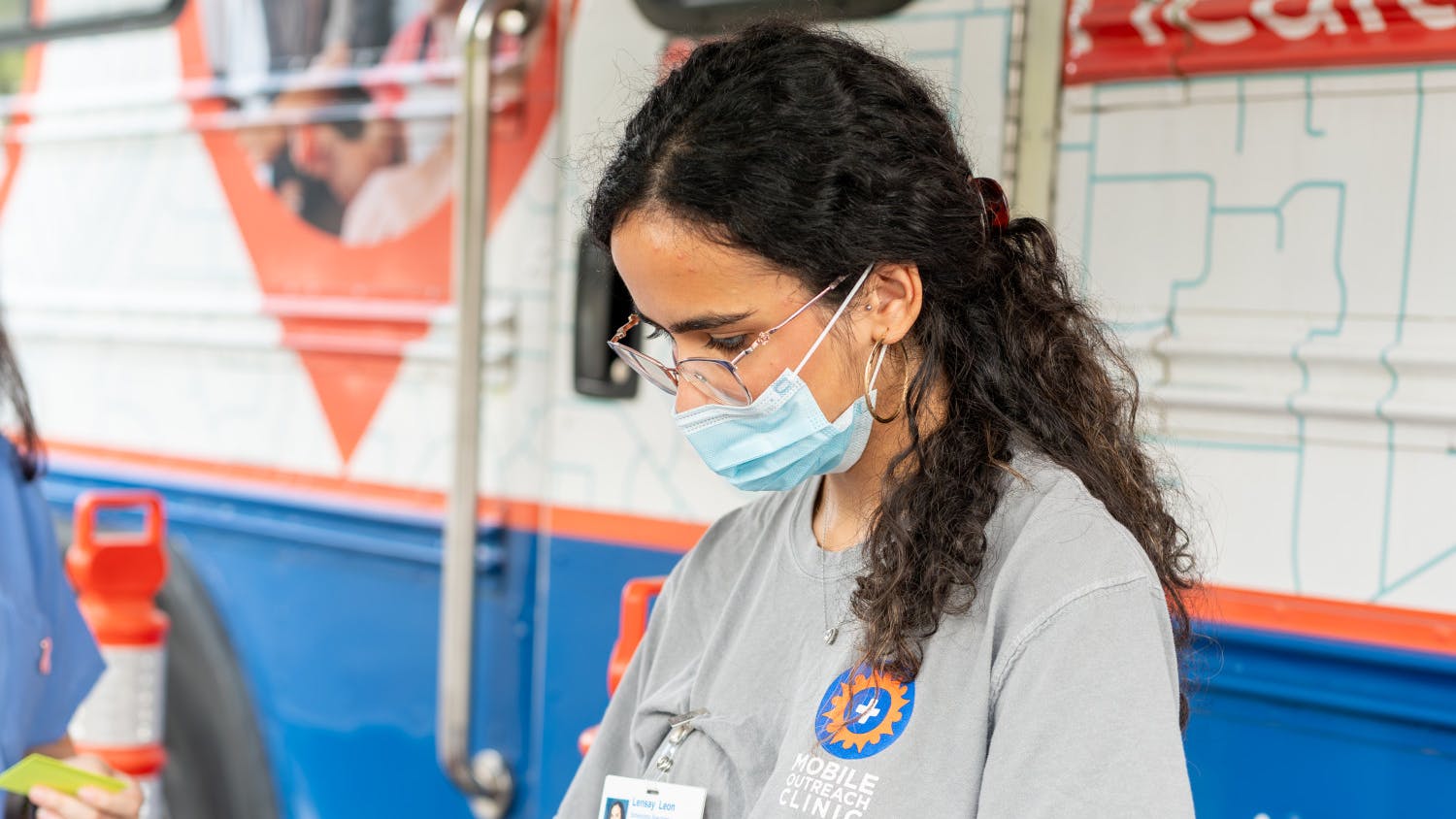Here in Gainesville, there are many places a citizen can go to get treatment for any illness.
Most Americans are fortunate enough to have access to affordable health care, and new reforms of the health care system have allowed even those with pre-existing conditions access to medical care. The American health care system is not the world’s best, but the U.S. does lead the world in developing the research and technology needed to battle illnesses of all kinds.
Unfortunately, the health care situation in West Africa is much worse. Ebola broke out in a border region in March of this year, and the international response to combatting the disease has been slow. The World Health Organization only declared the outbreak a world health emergency in August, the month in which the most single-month Ebola deaths in history were recorded.
Many African countries don’t have the necessary infrastructure to combat preventable diseases. Health care workers in these countries are discouraged by the lack of infrastructure, and many of them have quit their jobs out of concern for their own health and safety.
The dangers of practicing health care in Africa have led to a critical shortage of trained medical personnel. According to data from the WHO, Liberia has 1.4 doctors and 27.4 nurses per 100,000 people. Guinea has 10 doctors and 51.1 nurses per 100,000 people. Sierra Leone has 2.2 doctors and 16.6 nurses per 100,000 people.
These numbers are barely enough to treat an outbreak of the common cold among a large population, let alone a devastating disease like Ebola. The lack of medical expertise in Africa leads to distrust and fear of preventive health care. Other social issues, such as low literacy rates and political instability, make stopping or slowing down these diseases even more difficult.
In response to the African Ebola outbreak, the Obama administration has committed $175 million to combatting the disease. These funds will build 17 Ebola treatment units, including 1,700 hospital beds. The money will also be used to hire and train additional medical personnel to accommodate the growing number of patients. The Obama administration also asked Congress for an additional $88 million, which will add to the relief effort by investing in vaccine development.
President Barack Obama called the outbreak “a national security threat.” Labeling the Ebola outbreak as a threat to our interests indicates his belief that Africa’s problems are our problems, too.
Despite these strong words from the president, only fears of a potential American outbreak have legitimized the relief effort and forced people to finally pay attention to this horrible crisis. Fortunately, these unfounded fears may have the consequence of encouraging members of Congress to act on this issue with a sense of urgency.
Tragically, the current Ebola efforts may simply be too little, too late. The disease has already claimed more than 1,800 lives this year — a number projected to increase significantly in the near future — and no vaccine for the disease has yet been developed. Beth Bell, a director at the Center for Disease Control, said that without effective interventions, the number of Ebola cases could skyrocket into the “hundreds of thousands.”
Additionally, the president’s military and national security language may be effective in mobilizing action, but it ignores the social aspect of this crisis.
Because literacy is so low in parts of West Africa, information travels at a slow, unreliable pace. Relief efforts must ensure that health care officials work to gain the trust of locals while also training more African-born health care providers.
Other industrialized and developed nations must play a role in these efforts as well. The world looks to the U.S. for leadership, and rightly so. However, outbreaks require quick, large-scale responses from all corners of the globe.
The response to the Ebola outbreak demonstrates how weak global health infrastructure actually is. Hopefully, the U.S. and the global community will apply the lessons from the ongoing crisis to future health issues. If the world drags its feet, public health problems will only get worse.
Harold Joseph is a UF political science junior. His columns appear on Fridays.
[A version of this story ran on page 7 on 9/19/2014 under the headline "Global Ebola virus response falls short"]




